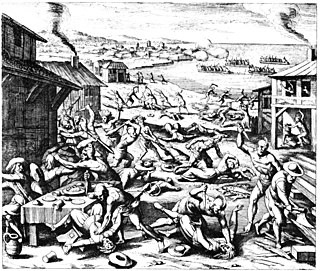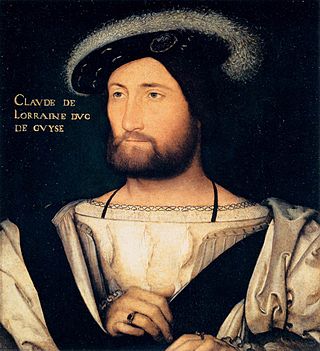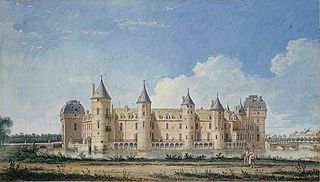Contents
This article needs additional citations for verification .(November 2024) |
| |||||
| Decades: | |||||
|---|---|---|---|---|---|
| See also: | Other events of 1578 History of France • Timeline • Years | ||||
Events from the year 1578 in France
This article needs additional citations for verification .(November 2024) |
| |||||
| Decades: | |||||
|---|---|---|---|---|---|
| See also: | Other events of 1578 History of France • Timeline • Years | ||||
Events from the year 1578 in France

1624 (MDCXXIV) was a leap year starting on Monday of the Gregorian calendar and a leap year starting on Thursday of the Julian calendar, the 1624th year of the Common Era (CE) and Anno Domini (AD) designations, the 624th year of the 2nd millennium, the 24th year of the 17th century, and the 5th year of the 1620s decade. As of the start of 1624, the Gregorian calendar was 10 days ahead of the Julian calendar, which remained in localized use until 1923.

The 1490s decade ran from January 1, 1490, to December 31, 1499.

The 1620s decade ran from January 1, 1620, to December 31, 1629.

1618 (MDCXVIII) was a common year starting on Monday of the Gregorian calendar and a common year starting on Thursday of the Julian calendar, the 1618th year of the Common Era (CE) and Anno Domini (AD) designations, the 618th year of the 2nd millennium, the 18th year of the 17th century, and the 9th year of the 1610s decade. As of the start of 1618, the Gregorian calendar was 10 days ahead of the Julian calendar, which remained in localized use until 1923.

Year 1554 (MDLIV) was a common year starting on Monday of the Julian calendar.
The 1460s decade ran from January 1, 1460, to December 31, 1469.

1630 (MDCXXX) was a common year starting on Tuesday of the Gregorian calendar and a common year starting on Friday of the Julian calendar, the 1630th year of the Common Era (CE) and Anno Domini (AD) designations, the 630th year of the 2nd millennium, the 30th year of the 17th century, and the 1st year of the 1630s decade. As of the start of 1630, the Gregorian calendar was 10 days ahead of the Julian calendar, which remained in localized use until 1923.

1612 (MDCXII) was a leap year starting on Sunday of the Gregorian calendar and a leap year starting on Wednesday of the Julian calendar, the 1612th year of the Common Era (CE) and Anno Domini (AD) designations, the 612th year of the 2nd millennium, the 12th year of the 17th century, and the 3rd year of the 1610s decade. As of the start of 1612, the Gregorian calendar was 10 days ahead of the Julian calendar, which remained in localized use until 1923.

1621 (MDCXXI) was a common year starting on Friday of the Gregorian calendar and a common year starting on Monday of the Julian calendar, the 1621st year of the Common Era (CE) and Anno Domini (AD) designations, the 621st year of the 2nd millennium, the 21st year of the 17th century, and the 2nd year of the 1620s decade. As of the start of 1621, the Gregorian calendar was 10 days ahead of the Julian calendar, which remained in localized use until 1923.
The 1480s decade ran from January 1, 1480, to December 31, 1489.

The 1580s decade ran from January 1, 1580, to December 31, 1589.

Year 1493 (MCDXCIII) was a common year starting on Tuesday of the Julian calendar.

Year 1558 (MDLVIII) was a common year starting on Saturday of the Julian calendar.
Year 1450 (MCDL) was a common year starting on Thursday of the Julian calendar.

The House of Guise was a prominent French noble family that was involved heavily in the French Wars of Religion. The House of Guise was the founding house of the Principality of Joinville.

François de Lorraine, 2nd Duke of Guise, 1st Prince of Joinville, and 1st Duke of Aumale, was a French general and statesman. A prominent leader during the Italian War of 1551–1559 and French Wars of Religion, he was assassinated during the siege of Orleans in 1563.

Claude de Lorraine, Duke of Guise was a French aristocrat and general. He became the first Duke of Guise in 1528.
Louis I d'Orléans, Duke of Longueville, was a French aristocrat and general, Grand Chamberlain of France and governor of Provence.

Vidame de Chartres was a title in the French nobility. There are a few vidame titles in France, of which that of Chartres is probably the best known, because a number of holders have been notable in widely different ways over the centuries. Vidame was originally the name for the commander of a bishop's military force in the Early Middle Ages, when bishops, like other great lords, needed troops for security. The title eventually developed into a heritable noble title, like others linked to a specific estate. The title therefore passed to the new owner when the estate was sold, as happened a number of times in this case.

François de Vendôme, Vidame de Chartres, was a successful soldier and glamorous courtier who figures in accounts of the brilliant but decadent French court of the 1550s.